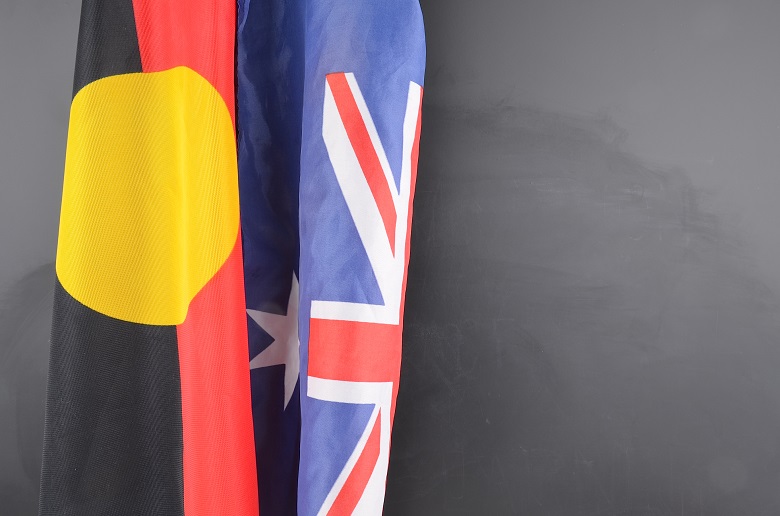
Mandatory minimum targets for Aboriginal participation in major government procurements are being undermined by poor implementation, lack of compliance and absence of monitoring, according to an audit.

The commonwealth government introduced the minimum requirements (MMRs) for procurements worth more than $7.5 million in 2016 as part of its indigenous procurement policy to generate economic opportunities for Aboriginal and Torres Strait Islander people.
They apply to specified non-corporate Commonwealth entities, which are required to commit to 4 per cent Aboriginal involvement per project and 3 per cent for an organisation.
But the report by the national audit office says “the MMRs have been ineffectively implemented and monitored” and most of the almost 70 contracts the ANAO looked at failed to comply with requirements and fell short of standards.
“While the MMRs were effectively designed, their administration has been undermined by ineffective implementation and monitoring and insufficient compliance by entities,” auditor David Hehir said.
The ANAO recommended that the IAA improve implementation and monitoring of the MMRs and that all the entities audited increase compliance.
The ANAO examined 69 contracts across Defence and the departments of education, home affairs and infrastructure. It found that only half of the contracts had a requirement to meet MMR targets and only 4 per cent were actively reporting on the monitoring system.
Indigenous Procurement Policy
The Indigenous Procurement Policy (IPP), introduced in 2015, brought in the MMRs. They are currently administered by the National Indigenous Australians Agency (NIAA).
Despite being well designed, the MMR scheme has fallen down at just about every step, from the government’s implementation and monitoring of the policy to contract management and reporting, the audit found.
The ANAO report comes after an evaluation of the IPP carried out by Deloitte for the Department of Premier and Cabinet and released last August found there were 104 MMR contracts valued at $7 million.
However, it said at the time of analysis none of the contracts had been completed so it was too early to confirm whether the MMR was delivering the intended increase in business to indigenous companies.
In Deloitte’s survey of government portfolios, 59 per cent believed the MMR had not been effective in driving demand for indigenous business.
The report did conclude that the IPP has had a positive effect on the growth of indigenous businesses, but warned the policy could increase the risk of “black cladding”, or the practice of non-Indigenous companies either creating a business structure where the shareholding percentage is technically enough to qualify as an Aboriginal business, or attempting to misrepresent themselves as Aboriginal businesses in order to win contracts.
Useful insights
Supply Nation CEO Laura Berry welcomed the ANAO review, saying while it highlighted the need for more to be done in Indigenous procurement it provided insights that could improve the policy.
Supply Nation is a not for profit organisation established to help integrate Indigenous businesses into the supply chains of corporate and government organisations. It has more than 2,500 Indigenous businesses on its data base and some 450 corporate and government members.
Ms Berry said the ANAO findings of poor administration and lack of oversight in the MMR program didn’t come as a surprise.
“Anecdotally I have heard some feedback from our Indigenous business owners about frustrations in that space, particularly in the larger construction areas,” she told Government News.
However she said the IPP overall had been a “massive step-change” that had opened up many opportunities for indigenous business.
“The success of this policy through the number of contracts and number of Indigenous businesses that have been engaged with it over the last almost five years now that’s just been enormous, and I don’t think anyone can dispute the success of the policy in that regard,” she said.
“We’ve seen significant engagement from the corporate sector since the launch of this policy and I would argue that the MMRs have had a big part to play in that. But getting the reporting framework in place took time and driving compliance takes time, it’s a constant process.”
Ms Berry said the procurement categories currently subject to MMRs are set to increase from July 1, which will provide more scope for engagement for both indigenous businesses and procurers.
Comment below to have your say on this story.
If you have a news story or tip-off, get in touch at editorial@governmentnews.com.au.
Sign up to the Government News newsletter
One thought on “Aboriginal procurement targets undermined”
Leave a comment:
Most read
Scathing report finds little has changed at PwC
Qld council welcomes progress on massive battery system
Inquiry to consider how federal govt can address councils’ sustainability issues
‘Local’ procurement turns out not to be so local, committee hears
Another report finds local government falling down on cyber security
IPP has been great for indigenous businesses for sure totally agree with your finding.
There are so many companies that are using indigenous share holder to tick the box I suggest a more thorough approach to testing and certification, including company that are currently certified!
Clearer guide lines for IPP
When it Comes a non indigenous company employing indigenous works
And an indigenous company tendering .
Company are thinking they can tick the box by employing few stop and go sign persons witch dose nothing for indigenous Australians or indigenous business BCF is currently running at 95% maybe to be certified a percentage of employment of indigenous skilled employees should be bench marked as well ,with real jobs and real direction Real out comes ??
Regards
Mick Davis